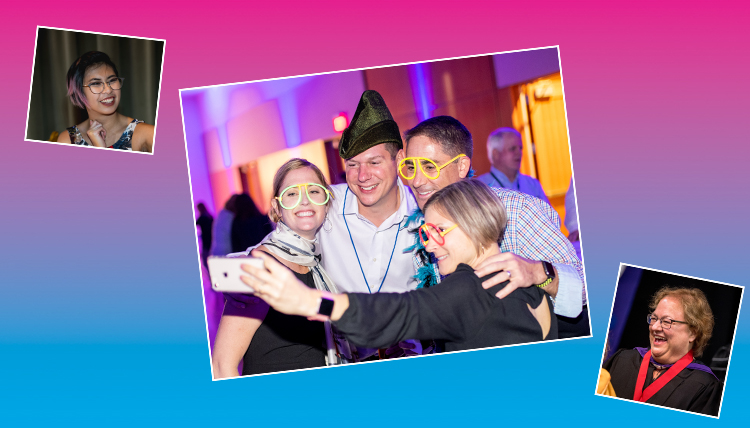Happy Apps & Positive Psychology

A growing trend in personal (and professional) development is positive psychology – the scientific study of “human flourishing” or “what happens when things go right” or “strengths that enable individuals and communities to thrive,” depending on which organization is defining it. Regardless of the terminology, this is about learning what enables achievement, fosters happiness, clarifies meaning, builds courage.
For Kara Hertz (’01), executive director of Alumni Relations, completing training for certification in the field was a choice based on a desire to strengthen leadership skills. For Tara Hiller, a licensed mental health counselor in Gonzaga’s Health and Counseling Services, attending conferences on positive psychology and happiness are ways she can enhance her care of students.
“Research shows that 50% of your happiness/joy is genetically set, 10% is influenced by circumstances but 40% is influenced by how we’re managing our thoughts and our intentional activity,” says Hertz, who trained at the Coaching and Positive Psychology Institute.
Building blocks of happiness include:
-
Positive thinking
-
Social connection (relationships and experiencing kindness from others)
-
Managing the negative
-
Living in the moment
-
Achievement (setting and reaching goals)
Apps
For Hiller and her colleagues whose work is mostly with busy, young, stressed-out college students, tips and tools include mobile apps that can provide support in personal growth and developing resiliency. Here are a few they list on the Health & Well-being website:
-
GPS for the Soul | find and return to that centering place of harmony and balance
-
HAPPIER | stay more present; take a quick meditation pause or capture small happy moments
-
HAPPIFY | effective tools to take control of your emotional well-being
-
COACH ME | free tracking tools to set and achieve goals
Need a Boost?
Try the happiness daily half-dozen for a week!
-
Write down three blessings.
-
Do something kind for someone else.
-
Move for 20 minutes.
-
Laugh.
-
Dedicate 60 seconds to quiet, deep breathing.
-
Think about (and do!) something that brings you joy.
Help Yourself, Help Others
- Care to join other Zags in happiness-boosting conversations and activities? Email Kara Hertz.
- While the Wellness Toolbox on Gonzaga’s website was developed with students in mind, the Health & Counseling Services materials could be helpful for anyone. Find them here.
- Want to help support the life-enhancing and even life-saving services offered to students through the Health & Wellbeing department? Visit ReadersCare to contribute.
- Alumni
- Health & Wellness
- Gonzaga Magazine





